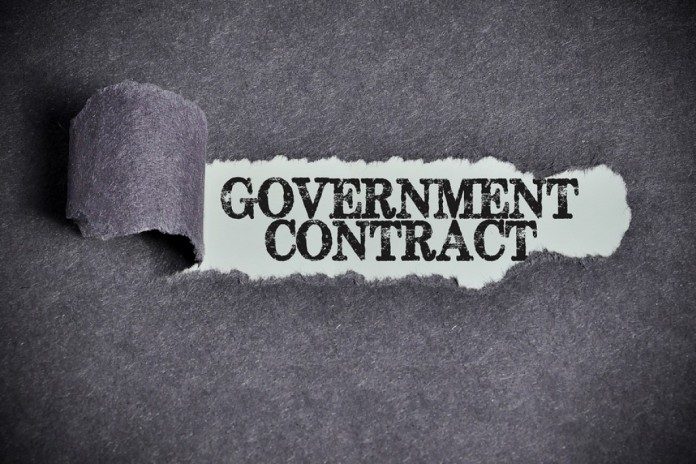This Article is written by Adarsh Singh Thakur, a 3rd-year student of Indore Institute of Law. He discusses Government Contract and the Constitutional requirements for it in detail.

Introduction
To carry out various business activities, the contract has become an essential part because under contracts the rights and obligations of all the parties involved in a transaction are provided and in case of a breach of contract, the remedy can be availed from the Courts.
The Government of India both at the Centre as well as at the State level also make several contracts because Government also runs public companies and carries out various function. While an ordinary contract is governed by the Indian Contract Act, 1872 but in case of a Government Contract some additional provisions have been provided under the Indian Constitution, thus the formation of Government contract is done in a different manner as compared to an ordinary contract.
To know more about the government contracts and constitutional provisions in brief, please refer to the video below:
Meaning of Contract
A contract is an agreement which is made between at least 2 people in which both of them agree to perform an act or abstain from doing the act in return for some consideration. Section 2(h) of the Indian Contract Act has defined a contract as an agreement which is enforceable by law. Thus when an agreement is not against the provisions of law it is a contract.
Illustration
A enters into an agreement with B to purchase his car for a sum of Rs. 4 lakh. Here, this agreement will be deemed as a contract as per Section 2(h) if it is enforceable by law.
Government Contract
As the name suggests a Government contract is a contract in which one of the parties is the Government. The State, as well as the Central Government, maybe the party in a Government contract. All the Government contracts are made in the name of President of India.
Position in England
In England the rule ‘the King can do no wrong’ was followed therefore a person could not file a claim against the Crown for a contract. A person could file a petition of right and if it was accepted then a royal fiat was granted and in such cases, the person could sue the Crown but this fiat was not a right and therefore in many instances, it was refused and a person had no recourse for his claim.
In the year 1947, the Crown Proceedings Act was introduced and this act removed the bar on the rights of a person to sue the Crown and now the Crown can be sued in an ordinary court for enforcement of a contract, subject to some exceptions which have been provided in contracts.
Position in India
In India, the Contracts can be entered by express as well as an implied agreement but in cases of Government contracts, the provisions of the Constitution specifically enumerated in Article 299 has to be followed and the formalities which are required have to be fulfilled for the formation of such contracts.
Formation of Government Contract
Under Article 298 of the Indian Constitution, the power of the Union and the State government to carry on any trade or business has been provided. For the formation of a Government contract the requirements under Article 299 have to be fulfilled and if they have fulfilled a contract can be enforced against the Government.
As per Article 299, all the contracts which are made under the Executive power of the Union or the State should be made in the name of the President or the Governor respectively. If a contract is not made under the President’s or Governor’s name, such a contract will not be considered as a Government contract. Further, all the terms of the contract should be enforced on their behalf a person who has been authorized to act on their behalf.
Under Clause 2 of Article 299, the President or the Governor cannot be held personally liable for the non-performance of the contract. Thus they are immune to any personal liability for the breach of contract because the contract is made in their name only but they themselves do not perform the contract.
While an ordinary contract can be made by express words and by the implied conduct of the parties, a Government contract should be made expressly. In the case of Seth Bhikraj Jaipuria v. Union of India, the Supreme Court had observed that from the words ‘expressed to be made’ and ‘executed’ in Article 299 it is clear that the Government contract should be made by a formal written contract. The court also held these formalities under Article 299 are of mandatory nature and they cannot be skipped by the contracting parties. If there is any contravention of these provisions then the contract will be nullified it will not be enforceable against the Government.
These provisions have been made to safeguard the Government against fake contracts which may be made on their behalf to defraud the people and this is the reason why implied contracts do not have any scope in cases of Government contracts.
In the case of K.P. Chowdhary v. State of Madhya Pradesh, the Supreme Court held that in view of Article 299, a Government contract cannot be created impliedly and there should be a formal express agreement. In case a person enters into a contract with Government impliedly, neither he nor the Government will be able to enforce it in a court.
While the Supreme Court has held in many cases that there should be a formal express contract, many have argued that it is not practical to always have a formal agreement and many times the Government officers enter into petty contracts as well and therefore it is not ideal to create a formal agreement every time even for such contracts. So, the requirements have been liberated and if the contract is made in writing and the substantial requirements under Article 299 Clause 1 are fulfilled then a contract will be valid even if all the requirements under this provision has not been fulfilled.

Contractual Liability in Government Contracts
Under Article 299 Clause 2, the President and the Governor and the person who is authorized to act on their behalf are provided immunity from any personal liability which may be incurred due to non-performance of the contract. This immunity is provided to them only but it does not mean that the Government is also not liable for the contract because it would be unfair for the other party.
So the liability of the Government will be the same as is the case in a normal contract under the Indian Contract Act, 1872. Thus, a person can sue the Government for the breach of contract and may be awarded damages by the court.
The courts have also held that in case the Government has derived any benefit from a person by an agreement which does not fulfil the requirements under Article 299, the Government will be held liable for compensating the other party under Section 70 of the Contract Act and such a contract will be deemed to be a quasi-contract to the extent the Government gets the benefit. This has been provided to protect an innocent party from suffering loss.
Under Section 70 of the Indian Contract Act, 3 conditions have been provided:
- A person should do something lawful for another or he should deliver something to another person
- He must do such an act without the intention of doing it gratuitously
- The person for whom such an act has been done or something has been delivered, should enjoy the benefit from such act or delivery.
This view has been adopted because the modern Government performs many functions and in carrying out these functions many petty contracts are also entered into as a result of which strict compliance with Article 299 is not observed in many cases. If what has been done by the other person is for the benefit of the Government and except for compliance with article 299 and all the other aspects of the contract are proper then, Section 70 should be applied.
Similarly, if a person has derived any benefit from the Government under such contracts, the Government also has the right to sue that person under Section 70. In the case the Government has made a void contract then it has the right to recover the benefits given by it from the other party under section 65 of the Indian Contract Act.
Although Section 70 allows the party to recover the benefits provided by it, it does not affect the binding character of Article 299. Under Section 70 apart cannot sue for the specific performance of the contract and he cannot ask for damages for the breach of contract. Under Section 70, the cause of action is not the breach of contract but instead, it is aimed to avoid the unjust enrichment to any party whether a person or even the Government. So, the claim under section 70 is based on the assumption that the contract is ineffective and thus it does not amount to a contract at all.
Government Contracts and the Role of Judiciary
The Government is not bound to enter into a contract with any person but when it does enters into one, it has to do so in a fair manner without any prejudice and such a contract is subject to judicial review power of the Judiciary.
The power of judicial review is exercised to keep the unfair practices which may be exercised by the Government or the officers who act on their behalf, in check and therefore it plays an important role in ensuring that the interest of the contracting party is protected.
The ambit of judicial review and the power of the court to set aside any decision of the Government on its merits are very important factors in Government contracts. This control by the judiciary is concerned with the decision-making process itself and not with the merits of the decision. By judicial review, the court cannot review the details of the terms of the contract which has been entered into by the public authorities on behalf of the Government. If the Government has entered into a contract without any arbitrariness and all the procedures have been duly followed in the contract which is essential to be followed without any prejudice, the court cannot exercise its power of judicial review.
But if the procedure which has been taken by the authority is against the provisions of Article 14 or there is non-compliance of the proper procedure and the interest of the public, the court cannot ignore such actions and it has to exercise its power of judicial review.
Thus the judiciary is only concerned with the manner in which a decision is taken and not with the fairness of the decision. So, the grounds on which an administrative action can be put to judicial review are as follows:
- Irrationality
- Procedural Impropriety
- Illegality
These grounds are not exhaustive and further grounds can be added for judicial review. In the case of Tata Cellular v. Union of India, the Supreme Court observed that The Government should be given the freedom to enter into a contract but this freedom should be subject to the test of reasonableness and should also be free from any arbitrariness.
Thus judicial review is a powerful tool in checking arbitrary Government contracts but this power cannot be used at any time because it would amount to infringing on the rights of the Executive to enter into contracts. So, whenever the contract is arbitrary or is against the proper procedure, the power of judicial review can be used.
Conclusion
A Government contract is the same as an ordinary contract but under this contract one of the parties is the Central or the State Government and in addition to the requirements of the Indian Contract Act 1872, the provisions of Article 299 of the Indian Constitution also has to be followed otherwise the contract will not be a valid one.
The formation of Government contract is done by express agreement in the name of the President or the Governor by a person who is authorized to act on their behalf and all of them are not personally liable. But the Government is held liable and contracts can be enforced against it.
Implied agreements cannot become a Government contract. Although strict compliance with the provisions of Article 299 is required to be fulfilled. But in cases where there is unjust enrichment, the court allows the party to recover such benefit provided by them.
The judiciary also plays an important role in Government contracts by exercising their power of judicial review to ensure that there is no arbitrariness or prejudice against a party to the contract. Therefore, when the provisions of Article 299 are complied with, a Government contract becomes valid and enforceable.
 Serato DJ Crack 2025Serato DJ PRO Crack
Serato DJ Crack 2025Serato DJ PRO Crack










 Allow notifications
Allow notifications



Thank you for sharing this article.
please write an article on government borrowings & different types of taxes under which provision vat, gst are constitutionally valid etc.